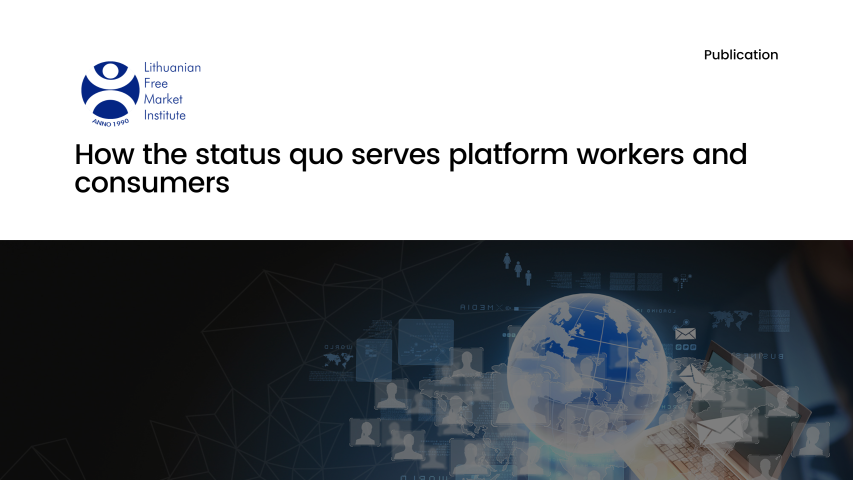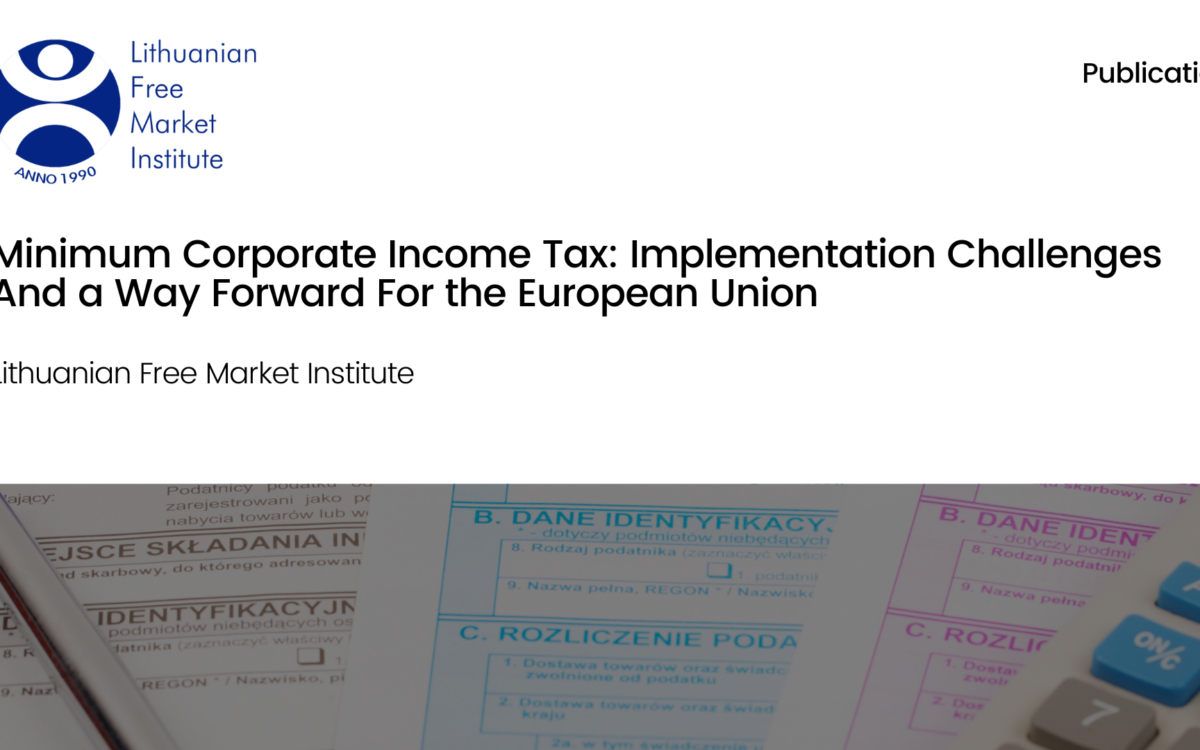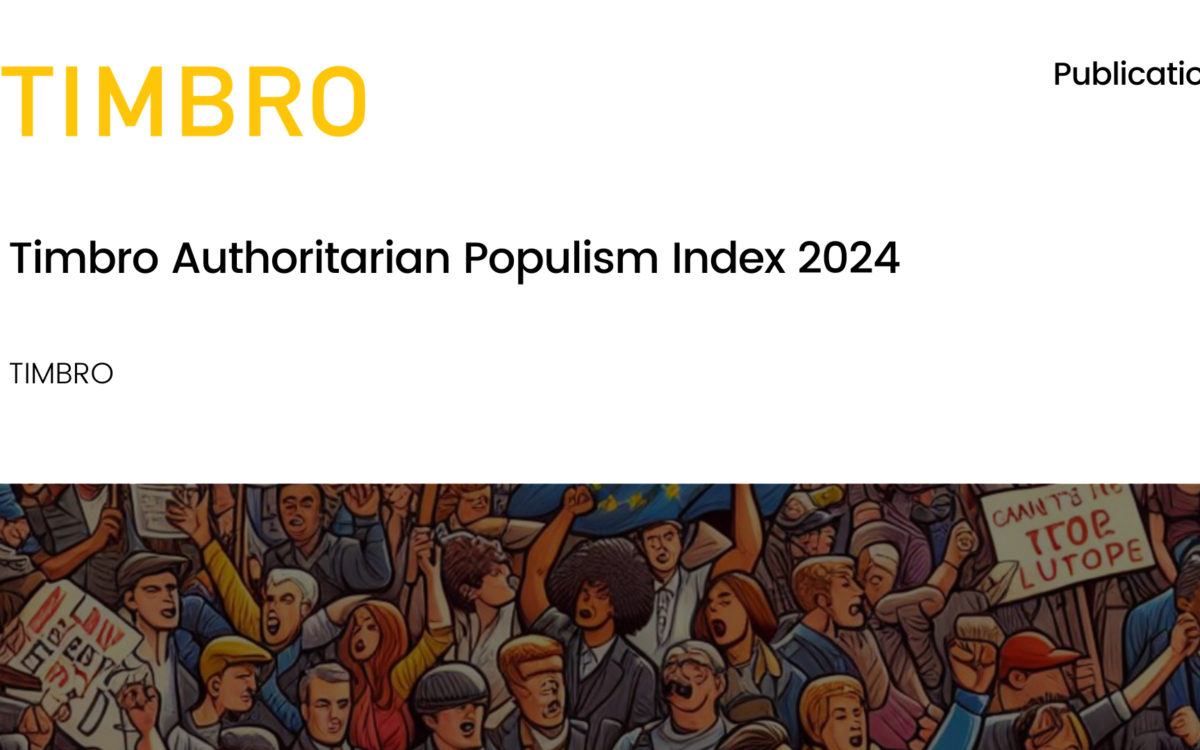How The Status Quo Serves Platform Workers And Consumers

How The Status Quo Serves Platform Workers And Consumers
15 February 2022
The European Commission has proposed a Directive of the European Parliament and Council on improving working conditions on platform work. The proposal lays down intricate requirements for platforms whose application is likely to have serious unintended consequences for the consumers and workers contrary to the directive objectives.
The fact that individuals themselves decide to engage in platform work suggests that they regard some conditions of platform work, such as remuneration and flexible timetables, as more advantageous, and thus more attractive. It may also be indicative of the desire to distance oneself from employment relationships and related regulatory restrictions on work activities, such as minimum rest, maximum working hours, subordination to the employer, etc. The breakthrough of the gig economy was preconditioned by the laxity, or even absence, of regulation, i.e., more freedom to enterprise and act.
Centralized rigid regulations of platform workers would negate the very essence of working through online platforms and the employment presumption would unjustly deprive individuals of the ability to decide on their preferred work module and conditions. Imposing labor standards to platform work will reduce the supply of services and increase their cost for the consumers. This may lead to many platform workers losing their income. It would result in decreased possibilities to find work in this sector, which is particularly relevant for those suffering the consequences of nationwide lockdowns and unemployment due to the pandemic.
The essence and combined characteristics of the operations of platforms suggest that they are not to be expected to provide stable income and workload for their users. Accordingly, platforms do not expect their contractors to work on a stable basis. Instead, the platforms offer connectivity services both to the consumer and worker. Rather than getting employed, the service provider buys the connectivity service through a platform. Accordingly, priority should be given to the principle of contractual freedom between the platform worker and operator to decide upon particular conditions of their relationship, assuming that the worker finds the particular conditions acceptable.
The EC identifies rating, or the assessment of information on the quality of the service, as one of the decisive criteria for determining whether a working relationship exists between the parties. However, in many cases, it is not the platform but its users who rate each other. In order to minimize its risks it is likely that platforms will start by abolishing the rating system, which will have a negative impact on both service providers and consumers given the reduction of clarity and foreseeability of one another.
The Directive provides for a presumption of an employment relationship if certain criteria indicating control are met. This would unduly deprive the self-employed of the possibility of deciding for themselves the model of organization and the conditions of their activity which they prefer, which is particularly important in view of the fact that they have freely chosen the model to act on the basis of a civil law agreement. According to the Draft Directive, the platform is assumed to be an employer and must enter an employment contract with the worker if specific predefined criteria apply. In practice, this means that a mere hypothesis would double or triple the platform’s expenses to cover the price of the workplace. The presumption may be overturned only in court, making the potential losses of the platform even higher. In addition, initiating court proceedings does not pause the presumption of employment. Such a requirement does not only unjustly increase the platform’s costs without an actual assessment of its operations. It means that the platform would be more incentivized to terminate a service contract with the driver, for example, since litigation would be more expensive. The Directive does not stipulate any safeguards if the presumption of employment is overturned, which only increases the uncertainty of the application of the Directive. This, in turn, may force out platforms from the EU since the potential risks of operating in this market would be too high to bear in comparison to other markets, where no such regulations are in force.
The Directive duplicates effective control requirements which can already be established under the EU acquis that covers labor relations and social protection. This implies that the issues that the EC aims to tackle are created not by an abundance of rules, but rather by the lack of their enforcement mechanisms.
Forcing former service providers and atypical workers into formal and traditional employment relations poses another conundrum, given that the employment framework may be ill-prepared to handle unorthodox work through platforms. It must be kept in mind that platform workers may not wish to engage in traditional employment or are unable to do so due to the peculiarities of their status. The latter may occur in instances where the person does not have a work permit due to immigration status. Furthermore, the majority of traditional employment contracts do not meet the need for flexibility that is provided by platform work. In such cases, an alternative could be zero-hour contracts that are the closest alternative to platform work and could ensure the needed flexibility.
Given the relatively short period since the rise of platform work and the EC’s proposal to regulate it, it would be prudent not to rush with interventions and instead monitor the market in order to better understand how it operates, particularly given the examples that platforms tend to introduce inter-partes rules on their social responsibility. The best way forward is to maintain the regulatory status quo of platform work, foster competition among platform operators, and establish efficient and easily accessible dispute resolution mechanisms, including alternative ones. Given that there is no single dominant platform in the market, individuals can choose companies that best suit their interests. In addition, by being able to conclude contracts freely, companies are encouraged to compete in order to attract service providers by providing more favorable conditions.
Download or share this publication
View the PDF
EPICENTER publications and contributions from our member think tanks are designed to promote the discussion of economic issues and the role of markets in solving economic and social problems. As with all EPICENTER publications, the views expressed here are those of the author and not EPICENTER or its member think tanks (which have no corporate view).



